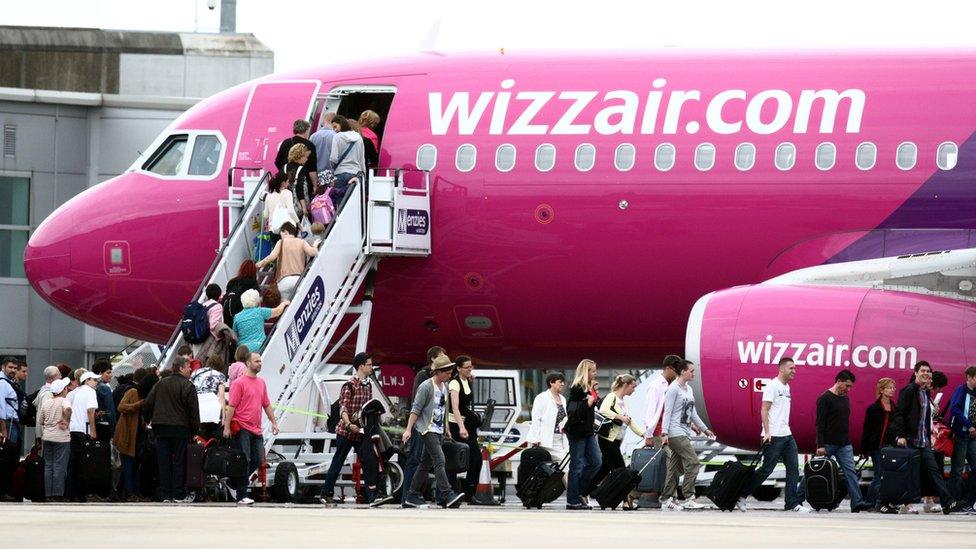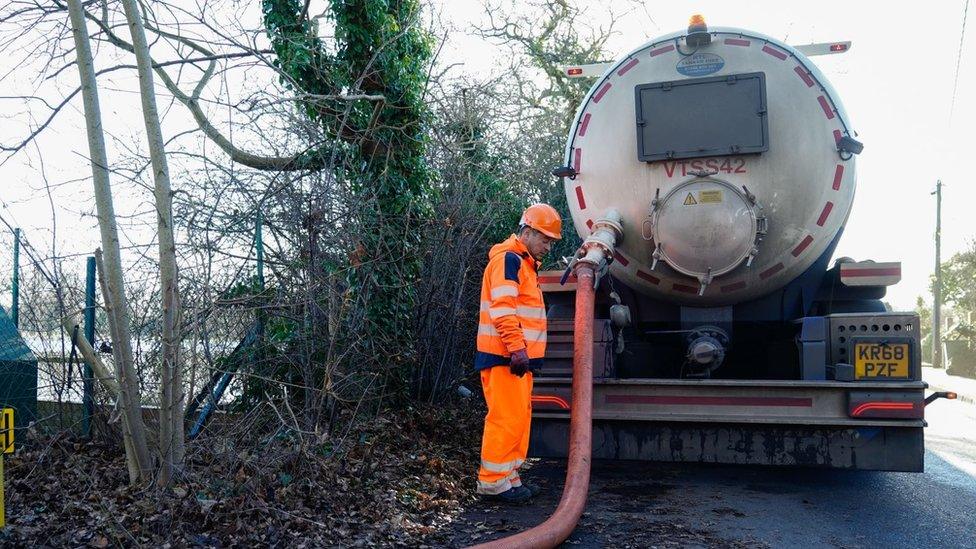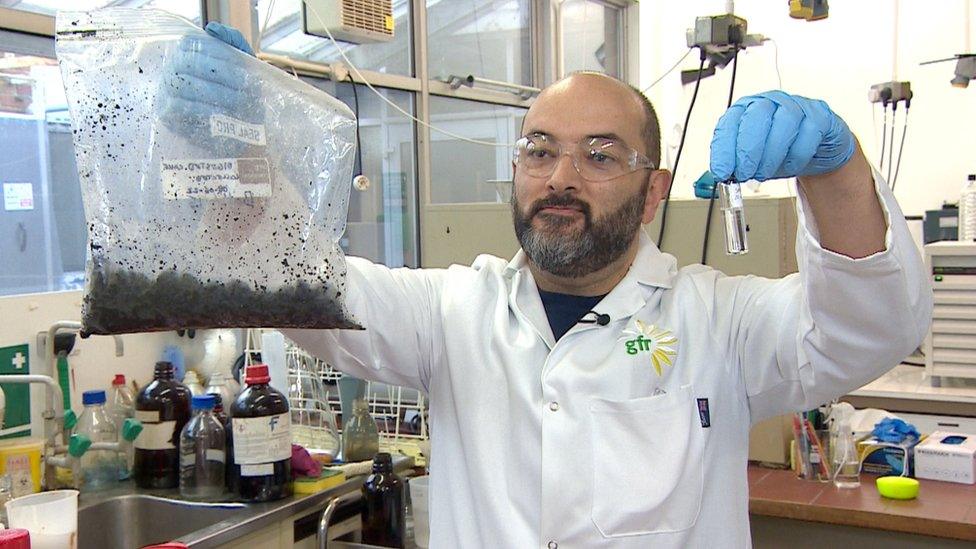Harwich factory to make jet fuel out of faeces in world first
- Published

Wizz Air says it wants to use the biofuel in mainstream operations by 2030
The world's first commercial-scale factory turning human waste into sustainable aviation fuel (SAF) has been announced.
Biofuel company Firefly plans to develop the plant in Harwich, Essex, and hopes to deliver fuel by 2028.
It has reached an agreement with Wizz Air to provide up to 525,000 tonnes of SAF over 15 years.
Firefly chief executive James Hygate said biosolids were "kind of disgusting stuff" but "an amazing resource".
"We're turning sewage into jet fuel. I can't really think of many things that are cooler than that," Mr Hygate added.
SAF's production involves using about 70% less carbon than conventional jet fuel, but is several times more expensive to produce.
Utility company Anglian Water has committed to providing the biosolids - a product of its waste water treatment process - to Firefly as part of an initial pilot phase.
Paul Hilditch, Firefly's chief operating officer, said there was enough biosolids in the UK to satisfy "half of the mandated SAF demand in 2030".
"And not just the UK of course. Anywhere in the world where there are people, there's poo," he added.
Firefly said it was in the process of obtaining regulatory approval for its system to be used for fuel aircraft.
Wizz Air also announced it hoped to power 10% of its flights with SAF by 2030.

Anglian Water said it would provide biosolids to Firefly
Yvonne Moynihan, corporate and ESG (environmental, social and governance) officer at Wizz Air, said finding sustainable fuel was crucial to reducing carbon emissions from aviation.
She said it would require a "ramp up of SAF production" and called on policymakers to support investment.
The government wants at least 10% of airline fuel in the UK to be made from sustainable feedstocks by 2030.

Follow East of England news on Facebook, external, Instagram, external and X, external. Got a story? Email eastofenglandnews@bbc.co.uk, external or WhatsApp 0800 169 1830
Related topics
- Published27 December 2023
